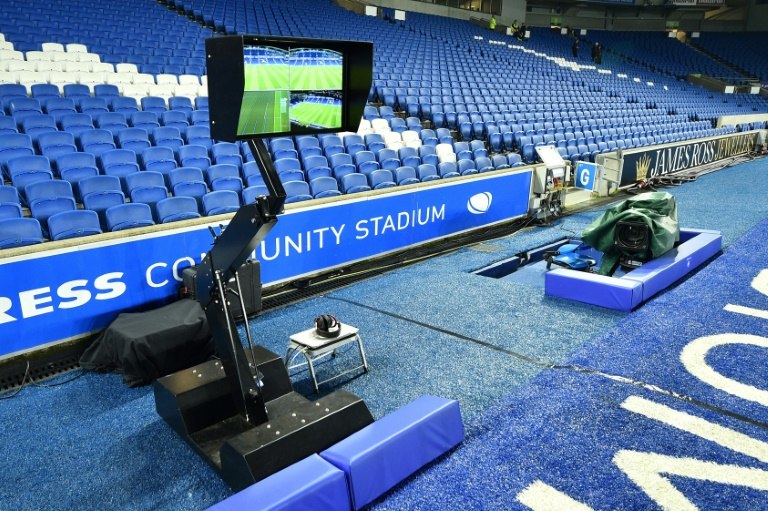
By Kofi Anokye OWUSU-DARKO (Dr)
Judicial resolution of disputes has been recognized as not only expensive but also adversarial in nature, often ending with a win-lose settlement that worsens already strained relationships. This underscores the need for an alternative and more appropriate dispute resolution (ADR) process that allows for faster, flexible, mutually beneficial settlements and fosters future relationships between the parties.
The concept of negotiations, conciliation, mediation, and arbitration as appropriate and/or alternate dispute resolution mechanisms to the adversarial process of litigation has been legally justified in the Ghanaian legal system through various legislations such as the Alternative Dispute Resolution Act 2010 (Act 798), Labour Act 2003 (Act 651), Land Act 2010 (Act 1036), Chieftaincy Act 2008 (Act 759), Courts Act 1993 (Act 459), and the High Court (Civil Procedure) (Amendment) Rules 2020.
Unfortunately, unlike traditional law firms that are established and recognized for handling litigation through the courts, the concept of having mediation and ADR firms to actualize the preference for non-adversarial pre-litigation mechanisms, especially mediation and customary arbitration, is yet to gain recognition. Unresolved disputes, especially in the areas of interest in land, family relations, workplace, and business transactions, hamper economic growth and development. Therefore, there is a need to limit the number of cases that end up in the courts, creating avoidable backlogs of unresolved disputes.
This article will examine the extent of recognition given to ADR in the Ghanaian legal framework and advocate for the recognition of private mediation and ADR firms to resolve disputes that need not be litigated by law firms in the courts, as practiced in certain jurisdictions such as Canada and South Africa.
THE GHANAIAN ADR LEGAL FRAMEWORK
The Alternative Dispute Resolution Act 2010 (Act 798) regulates the ADR framework in Ghana. Under Section 1, except for matters relating to the enforcement and interpretation of the Constitution, national or public interest, the environment, and primarily criminal cases, it now encourages the settlement of disputes by arbitration, mediation, and customary arbitration.
This makes litigation at the courts a matter of last resort in the dispute resolution continuum. There is a school of thought that the use of the word “alternative” in the concept of ADR as an alternative to litigation is therefore inappropriate. Hence, the preference for the term “Appropriate Dispute Resolution.” Appropriate in the sense that in any dispute, the most appropriate dispute resolution mechanism (negotiation, conciliation, mediation, arbitration, including customary arbitration, litigation) needs to be applied, with litigation being one of them and not the first point of call, with all others being alternate to it. I do share in that view. In fact, in the continuum, litigation is the last resort when the relationship has broken down or post-dispute relationship building is of no concern to the parties.
Specific Acts now encourage the use of mediation and other ADR mechanisms before resorting to litigation, and not surprisingly especially in areas such as land and labour-related disputes, which have a lot of family and employer-employee issues that require post-dispute relationship building.
Labour Act, 2003 (Act 651)
Sections 153, 154, & 157 of Act 651 require that every industrial dispute should be settled by means of negotiation, mediation, or arbitration, hence ADR. It therefore encourages the use of litigation in labour related issues as the last resort.
Land Act 2010 (Act 1036)
Section 98 (1) of Act 1036 states: “An action concerning any land or interest in land in a registration district shall not be commenced in any court unless the procedures for resolution of disputes under the Alternative Dispute Resolution Act 2010 (Act 798) have been exhausted.”
The use of the word “shall” is very instructive, meaning that the courts will not tolerate an action concerning land or interest in land in a registration district if there has not been a prior attempt to resolve the dispute through, for example, mediation.
Specific areas of the Land Act that put emphasis on ADR are:
-
Compensation for Damages to Land [Section 25 of Act 1036]: If you experience damage to your land, this section explains how you can seek compensation. If you are not happy with the Lands Commission’s review of your case within 30 days, you can take your complaint to mediation under the Alternative Dispute Resolution (ADR) Act 2010, (Act 798).
-
Lease Renewal Disputes [Sections 50 (15) & (16) of Act 1036]: If you cannot agree on renewing a lease, these sections say you should first try to resolve the dispute through mediation. If that does not work, you can then litigate the matter at the court.
-
Boundary Disputes [Section 91(2) of Act 1036]: If there is a disagreement about the boundary of your land, the Land Registrar is mandated to tell you to try mediation first. This means you have to use mediation to resolve the boundary issue before any other action.
-
Disputes Over Large Scale Land Decisions [Section 102 (7) of Act 1036]: If a clan or family is unhappy with the Regional Lands Commission’s decision on large-scale disposition of land issues, they can turn to mediation under the ADR Act to resolve the matter.
-
First-Time Land Registration Disputes [Section 104 (1)(C) of Act 1036]: If there’s a dispute about registering land for the first time, it is recommended to be settled through mediation as outlined in the ADR Act 798.
-
Rejected Land Registration [Section 107 (4) of Act 1036]: If your application to register land is denied and you are not satisfied after an appeal, you can use mediation to resolve the issue. If mediation overturns the rejection, the Land Registrar has 30 days under Section 107(8) to comply with the new decision. This is a mandatory requirement and depicts the extent of authority given to outcomes of ADR settlements.
-
Disputes Between Claimants [Section 115 (1) of Act 1036]: If multiple people claim an interest in the same piece of land and cannot resolve the issue, they must use mediation under the ADR Act to settle their dispute. This shows the extent to which the law places importance on the ADR in better resolving issues related to interest in land.
-
Disputes Over Lease Transfers [Section 142 (3) of Act 1036]: If a lessor refuses to consent to the transfer, sublease, or mortgage of a lease, the tenant can use mediation to resolve the issue.
-
Disputes Over Lease Registration [Section 143 (3) of Act 1036]: If you are unhappy with the Land Registrar’s decision not to register your lease, you must use mediation to address the problem. This is a mandatory requirement.
-
Rectification Disputes [Section 194 (5) of Act 1036]: If you disagree with the Land Registrar’s decision on correcting the land register, you can seek resolution through mediation.
-
Mistakes by the Lands Commission [Section 198 (2) of Act 1036]: If the Lands Commission makes a mistake that prevents you from acquiring land or an interest in land and you are not properly compensated, you can take the matter to mediation.
-
Unresolved Reviews and Appeals [Section 201 (2) of Act 1036]: If you are not satisfied with the Lands Commission’s reviews and appeals with respect to the Land Registrar, you can use mediation to resolve your concerns.
-
Unregistered Instruments [Section 225(6) of Act 1036]: If the Lands Registrar does not register an instrument and you disagree with the reasons, you can seek mediation under the ADR Act.
-
Compensation Disputes [Section 253 (3) of Act 1036]: If you are unhappy with the compensation assessment by the Lands Commission with respect to the value of interest in land, you can refer the matter to mediation after a review.
-
Conflicting Land Claims [Section 254 (1) of Act 1036]: If there are conflicting claims in the interest or rights to land, these must be resolved through mediation.
-
Compensation for Restoration of State Occupied Land [Section 254 (1) of Act 1036]: When there is a disagreement about compensation to be paid to the owner of land with respect to the restoration of land after the term the State has occupied the land, the State is compelled to settle the issue through ADR.
Land-related disputes have historically taken very long times to be settled through litigation, and the new Land Act now putting more emphasis on ADR is a positive development to reduce the burden on the court system. All the above sections of Act 1036 give priority to the use of ADR in the resolution of land disputes, with Section 98 (1) in particular making it generally obligatory for disputes in land or interest in land in a registration district to first be resolved through ADR mechanisms before being settled in court.
Courts Act, 1993 (Act 459)
Section 72 of Act 459, requires that civil courts and their officers should help people resolve disputes peacefully by promoting reconciliation and facilitating amicable both-win settlements instead of the win-lose outcome before the court.
Section 73 of Act 459, requires that for minor crimes that are not serious and do not involve aggravating factors (like the use of a weapon or causing serious injury), criminal courts can encourage reconciliation and settlement. If an agreement is reached and the court approves, the court can pause the proceedings, and if a settlement is reached, the court will dismiss the case and release the accused.
High Court (Civil Procedure)(Amendment) Rules, 2020 (C.I. 133)
Under the above rule, parties can apply in writing to try to settle a case through mediation or other means, pausing the court proceedings. Also, unless the law does not allow for settlement by the parties themselves, the Court can ask if they are willing to attempt settlement through mediation in accordance with the ADR Act 798 as per directives by the Chief Justice.
The above sections of the Courts Act 1993 (Act 459) and C.I. 133 encourage courts to help parties settle disputes amicably through Alternative Dispute Resolution (ADR) in civil cases and minor criminal cases. This practice, known as Court Connected ADR, involves referring cases to registered mediators, reducing court backlogs and allowing courts to focus on cases that cannot be settled through ADR or are more complex. There is however the need to extend this to private mediation and ADR firms.
MEDIATION AND ADR FIRMS AS RESPONSE TO THE LEGAL FRAMEWORK
Mediation is assistance to two or more interacting parties by third parties who (usually) have no authority to impose an outcome (Kressel and Pruitt 1989 as cited in Wall, Stark, and Standifer 2001). Most scholars agree that mediation has three defining elements: (1) assistance or some form of interaction by (2) a third party who (3) does not have the authority to impose an outcome (Wall, Stark, and Standifer 2001).
The Judicial Service Court Connected ADR Practice Manual defines mediation as “a process by which a neutral third party, a mediator, facilitates communication between the parties to assist the parties to reach a mutually acceptable settlement.”
There are various approaches to a mediation process, and section 74 (6) of Act 798 allows the mediator to use the most appropriate manner in resolving a dispute whilst taking into account the wishes of the parties. One such approach is the PULSE mediation model, which is about People Using Language Skills Effectively (Love 2008). It is a tested process in enhancing the interactions between the parties in a dispute, keeping them engaged in a conversation to mutually reach a both-win settlement and to improve their relationship.
Once the laws of Ghana encourage the use of mediation as part of the dispute resolution processes with litigation being the last option, it is appropriate that disputants are given the framework to access ADR services outside the court system as against first resorting to litigation and the matter being referred by the court to internal court mediators through the Court Connected ADR system.
If the laws are promoting the use of mediation and other ADR dispute resolution mechanisms prior to litigation, then the establishment of private mediation and ADR firms, similar to how we have law firms for litigation, is the way forward. This would effectively put the ADR Act into action, positioning mediation as an appropriate settlement mechanism for preserving relationships, rather than merely an alternative to litigation when swords have already been drawn and crossed to the point of a conflict situation with no regard for preserving the relationship.
Mediation can successfully be employed in disputes relating to lease renewal, interest in land, financial investment, family relations, intellectual property, workplace and labour-related disputes, corporate governance, and many more. Disputants will be able to engage the services of these private mediation firms for amicable settlement, especially in situations where relationships need to be preserved. When mediation fails, a certificate of a failed mediation attempt can be issued, particularly in cases where the law makes pre-litigation mediation mandatory. Parties can then seek the services of lawyers to begin the litigation process in the courts. Consequently, the number of cases that end up in the courts due to mere misunderstandings or disputes that could have been resolved between the parties themselves will drastically reduce.
CHALLENGES IN RECOGNITION OF MEDIATION AND ADR FIRMS
Regulatory Issues, Public Awareness, and Acceptance:
The history of law firms indicates they started in ancient Rome when many lawyers were clerics. This was without regulation until being formalized in the 13th century in England through Inns of Court in London, playing a crucial role in training and regulating barristers. In the 18th and 19th centuries, as commerce and industry grew, the demand for legal services increased, and law firms began to form. The 20th century saw significant formalization and regulation of the legal profession. Bar associations and law societies were established in many countries, setting standards for education, ethics, and practice.
As with law firms, mediation and ADR firms might take the same process of evolving from informal self-regulated practices to more formal legislative regulation. Should it gain the needed public acceptance, there will be the need to regulate the practice with a separate legal framework as with the Legal Profession Act 1960 (Act 32). This will enhance professionalism with respect to a code of practice for mediation and ADR practitioners. Practitioners must have obtained a recognized professional practicing certificate from a recognized institution as having obtained the requisite qualification and training. Formal regulation will then give confidence to the general public with respect to the conduct of practitioners with a channel of redress should there be a misconduct.
Push Back from Existing Law Firms
One need not be a lawyer or even have a law degree to learn and understand non-judiciary dispute resolution mechanisms as in ADR. The concept of Mediation and ADR firms in the Ghanaian dispute resolution space will be a disruption of the status quo occupied by law firms. The legal fraternity is even trying to limit the number of people joining, let alone their space being taken over by non-lawyers with respect to ADR practices, and this will not come easily. This is not an ordinary change but disruptive in nature, and it is expected that lawyers will resist the recognition of private mediation and ADR practice co-existing with them.
WAY FORWARD AND JOB CREATION OPPORTUNITIES
Actualizing the ADR Act 2010, (Act 798) and prioritizing non-judicial resolution of disputes in Ghana can create new career paths and employment opportunities. Establishing private mediation and ADR firms as well as integrating ADR practices within traditional law firms is a largely untapped area. This initiative requires a collective effort from the legal community, government and policymakers, the judiciary, and public awareness campaigns.
Legal Community
-
Professional ADR Training: Lawyers should embrace professional ADR training, and traditional law firms must integrate ADR practices within their firms. A lot more lawyers are being proactive about the future dispute resolution landscape beyond litigation and are getting formal professional training in ADR practice, especially in mediation, adding that skill set to their training in advocacy and litigation.
-
Establish ADR Departments: By setting up ADR departments and collaborating with non-lawyer ADR practitioners, law firms can enhance their service offerings and better meet their clients’ needs as a one-stop dispute resolution practice. A collaborative effort between the legal profession and ADR practitioners is the way to go.
-
Amend Regulations: This may necessitate amendments to the laws regulating law firms, ensuring a clear distinction (or “Chinese wall”) between the legal and non-legal departments within their practices.
Policymakers and Government Support
-
Economic Impact: Disputes in workplaces, families, or land-related issues affect productivity, thereby impacting the economy negatively. Policymakers and the government must therefore be interested in creating an enabling environment for mediation and ADR practice to thrive and to create employment.
-
Certification and Regulatory Framework: Policymakers and the government must develop a formal framework for the regulation of ADR practitioners and firms, allowing them to coexist with traditional law firms. This includes setting standards for training, certification, and professional conduct, ensuring that ADR services are delivered with the highest level of professionalism and integrity. The Gamey and Gamey ADR Institute currently offers professional mediation and ADR training, and their services would be helpful in developing this regulatory framework.
Judiciary Support and Public Awareness
-
Judiciary’s Role: The judiciary is well-positioned to champion ADR awareness, showing the public that courts prefer amicable settlements to ease the court’s workload. This would help to resolve disputes without lengthy litigation to preserve relationships.
-
Active Referrxals: Beyond Court Connected ADR, the judiciary should actively refer cases to private mediation and ADR firms, endorsing their services and legally adopting their outcomes as part of the dispute resolution process.
-
Public Education: Continuous education about the benefits of ADR is essential. This can be achieved through awareness campaigns, workshops, and collaborations with the judicial service beyond the current annual ADR week.
Vision for the Future
Imagine a future where mediation and ADR firms are as commonplace as traditional law firms in Ghana. Disputes are resolved swiftly and amicably, preserving relationships and fostering a culture of collaboration and mutual respect. A future where the courts are free from backlog, able to focus on cases that truly require litigation and judicial intervention. Lawyers and ADR practitioners working hand in hand, each bringing their unique expertise to the table, ensuring that dispute is not only done but seen to be done in the most efficient and effective manner.
CONCLUSION
Litigation with the use of lawyers is one method of resolving disputes. ADR, especially mediation, is another method that is less expensive and has faster resolution times, particularly when the PULSE mediation methodology is used. Unlike courtroom litigation, which often results in win-lose outcomes that seldom build relationships, mediation and other ADR non-judicial dispute resolution methods are more efficient, less adversarial, and tailored to the needs of the parties. They result in disputing parties finding mutually acceptable, both-win solutions that build relationships going forward, especially in disputes involving family or business issues where post-conflict relationship continuity is paramount.
The courts are inundated with cases that are mere blips in misunderstandings and not yet crises where relationships have broken down to be litigated by lawyers. This has created unnecessary backlogs of unresolved disputes that are being resolved through mediation services attached to the courts as Court Connected ADR. However, having disputing parties first subject themselves to litigation at the courts before being referred to the Court Connected ADR does not only waste time but defeats the intent of most of the laws of Ghana that now encourage ADR before judicial resolution of disputes.
The opportunity exists to have pre-litigation dispute resolution through private mediation and ADR firms, and their growth has to be supported. The way forward is private mediation and ADR firms as we have in other jurisdictions, and their establishment akin to traditional law firms is not only feasible but also necessary. Lawyers, after undergoing professional training in ADR practice, can also have the opportunity to set up ADR units in their law firms and should not unduly resist this change that will impact their area of practice with respect to dispute resolution.
The potential for private mediation and ADR practice to transform the dispute resolution landscape and create jobs in Ghana is immense. By embracing this progressive approach, we will build a more harmonious society with respect to post-dispute relationships with a positive impact on the growth of the economy.
The author holds an LLB and is a PULSE Mediation and ADR Practitioner. A graduate of Gamey and Gamey ADR Institute. contact: [email protected])
The post Time for mediation and ADR firms as with law firms appeared first on The Business & Financial Times.
Read Full Story





















Facebook
Twitter
Pinterest
Instagram
Google+
YouTube
LinkedIn
RSS